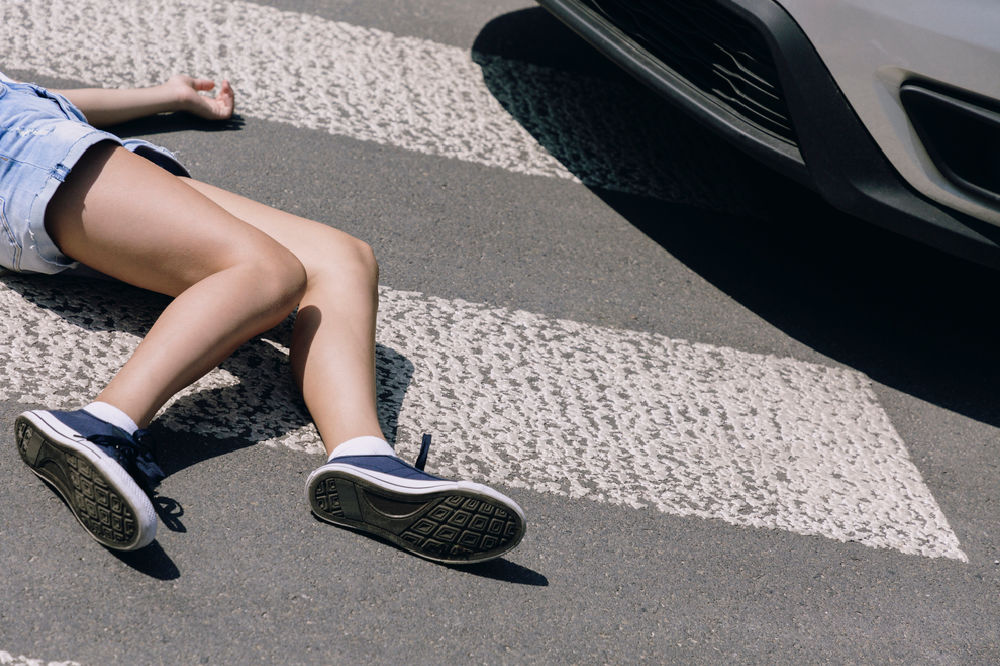Any type of accident can be traumatizing for the victims involved, but pedestrian accidents especially are known for having tragic and traumatic outcomes. In 2019, 7,668 pedestrians were killed by motorists, and over 6,000 of the accidents occurred on public roads. The largest number of deaths are reported on Saturday nights when many individuals are out walking the streets, likely going to and from bars, restaurants, and partaking in other late-night activities.
While pedestrian accidents in Indiana have gone down slightly since 2018, it remains the 38th most dangerous state for pedestrians, with 73 fatalities reported in 2019. For those injured, the resulting damage and trauma can be life-altering.
Even if pedestrians survive, the injuries are often so severe that it affects their ability to live and work, and can even affect their emotional wellbeing. Because of this, victims need to work with an experienced attorney to ensure they receive the full amount of compensation they deserve. Damages awarded in pedestrian personal injury claims and lawsuits can help cover costs such as medical bills, loss of wages, and even pain, suffering, and mental anguish.
Indiana Pedestrian Laws
Every state has right-of-way laws in place to help protect pedestrians and ensure their safety. While pedestrians can be at fault, pedestrian accidents are often a result of a negligent driver. However, it is also possible for both parties to be partially liable.
According to Indiana TITLE 9. Code, Pedestrian laws are as follows:
- Pedestrians must obey all traffic control signals unless instructed otherwise by a police officer.
- Local authorities may prohibit pedestrians from crossing the street in a business district or highway except when walking in a crosswalk.
- Pedestrians may not walk or run suddenly into the path of a nearby vehicle.
- If pedestrians cross the road anywhere other than within a marked crosswalk or an unmarked crosswalk at an intersection, they must yield the right of way to vehicles.
- Pedestrians may not cross at any place except in a marked crosswalk when there are adjacent intersections with traffic control signals in operation.
- At diagonal crossing intersections, pedestrians may not cross unless authorized by traffic control signals.
- Pedestrians shall move along the right side of crosswalks when practicable.
- If a sidewalk is present and available for use, pedestrians may not walk in the roadway.
- If a sidewalk is not available, the pedestrian may walk along the shoulder of the roadway as far to the outside edge as possible.
- Except otherwise noted, pedestrians must yield the right of way to all vehicles in the roadway.
Proving Fault in a Pedestrian Accident
When pedestrians are hit and injured in an accident, to obtain compensation from the guilty driver or their insurance, there must be proof that the pedestrian was moving in accordance with the local laws and that the driver was the negligent party. To prove the fault of the driver, three things must have occurred:
- The driver owed the pedestrian a reasonable care of duty by obeying all traffic laws.
- The driver breached that care of duty, and
- The driver’s negligence was the cause of the pedestrian’s injury.
If all of the above is true, the guilty party and their insurance will be responsible for paying damages to the injured party. However, Indiana is a comparative fault state, meaning a party is only responsible for the percentage of their fault. This means that if the pedestrian is also found to be partially responsible, their compensation amount could be reduced based on the percentage of their fault in causing the accident. If they are found to be more than 50% percent responsible, they may not be able to collect any damages.
Damages Available to Indiana Pedestrians Hit by a Motor Vehicle
In a personal injury case, there are two types of damages awarded to injured pedestrians:
- Economic damages: These represent the monetary losses a victim suffers, such as medical expenses, property damage, and loss of income.
- Noneconomic damages: These represent non-monetary losses, such as pain and suffering, loss of enjoyment of life, and mental anguish or emotional distress.
- Punitive damages: Punitive damages are awarded when the guilty party is found to have had intentional malicious intent.
All damages can include:
- Current medical expenses
- Future medical expenses related to the injury
- Therapy for both mental and physical-related issues
- Property damage
- Lost wages from an inability to work while recovering
- Loss of future wages if the injury results in a permanent disability that affects your future earning potential and ability to work
- Pain and suffering
- Emotional trauma, such as PTSD
- Loss of enjoyment of life
- Wrongful death—these damages may be awarded to family members or loved ones when the injured victim dies as a result of the accident and their injuries.
Consult an Indianapolis Personal Injury Lawyer
At Crossen Law Firm, our team has over 20 years of experience fighting for victims injured in pedestrian accidents. We understand how devastating the resulting injuries and emotional trauma can be after such an accident. Our team is dedicated to working tirelessly to get you the compensation you deserve so you and your loved ones can recover and move on with peace of mind.
Contact us today or give us a call for a free consultation. (317) 401-8626

 317-401-8626
317-401-8626 
.jpg)